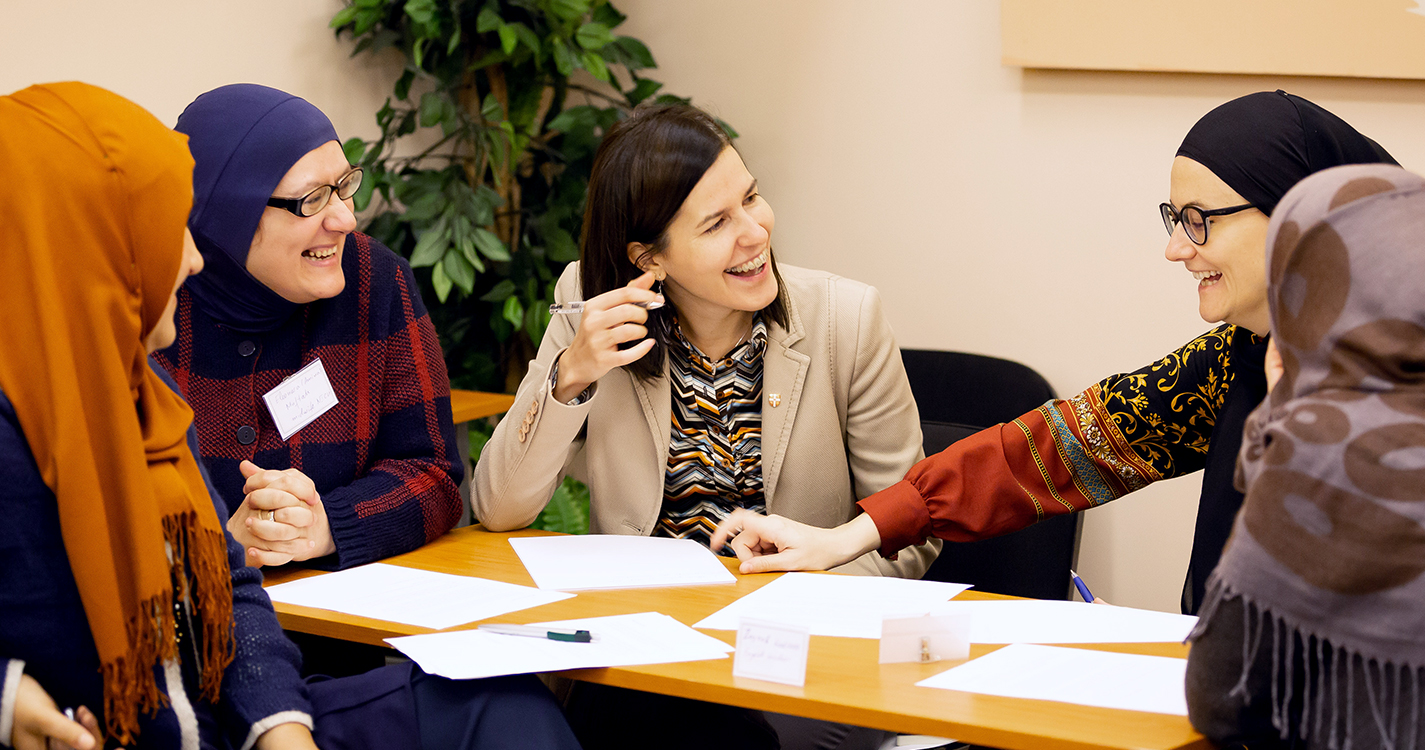When Rositsa Atanasova ’07 began studying ancient Greek and Hebrew at Willamette, she didn’t know it would lead her to the Sorbonne University in Paris then Harvard Divinity School.
She also didn’t know she’d earn a law degree at the University of Cambridge or return to her native Bulgaria, where over the last seven years she’s fought for the rights of migrants and refugees.
None of this was evident when she first began her Classical Studies major. But what has become clear is how seriously she has taken Willamette’s motto, “Not unto ourselves alone are we born.”
“The motto still very much defines what I do,” she said. “I feel if there’s one thread that connects it all, it’s that.”
Early years
Atanasova moved to Maine to finish high school when she was 17. She’d planned to attend college in the U.S., and after being impressed by the warm and welcoming community, enrolled at Willamette in 2003.
Fascinated by religion and its role in human identity, she studied biblical Hebrew with Professor Emeritus of Religious Studies David McCreery — a rare option at a university that influenced her decision to major in classical studies — fed her love of language through ancient Greek with Professor of Classics Mary Bachvarova, who became her mentor.
Studying classics allowed Atanasova to research what she was most interested in — how ancient texts shape what we believe, how they’re used in rhetoric, politics and social life to this day — but she was at times doubtful of her degree. At Bachvarova’s encouragement, she stayed in the major, which helped her develop the critical thinking skills crucial for her career to this day, she said.
Meanwhile, Atanasova worked as a manager for Willamette’s World Language Learning Center, supporting the study of foreign languages through technology. The job allowed her to learn video editing, so she pitched an idea for a documentary to the philanthropic Lilly Endowment and won a grant. When she studied abroad in Paris her third year, Atanasova shot and produced a documentary exploring the conflict between the 2004 French law on secularity and Muslim women’s commitment to wearing the Islamic veil.
In 2008, she became the first Willamette student to win the highly coveted Jack Kent Cooke Scholarship — up to $50,0000 for up to five years of graduate study, in any field anywhere in the world — and she decided to use it toward a master’s degree at Harvard Divinity School with a focus on Islamic studies.
She said, “In some ways, it still revolved around the same questions I’d mulled over as an undergraduate: religion, identity, what it means to belong to a religious minority and how that shapes you.”
In her essay to Harvard, she spoke of Willamette’s motto. It had encapsulated her academic interests in antiquity, ethics and identity as well as her personal commitment to cross-cultural dialogue and understanding, she wrote.
Life-changing scholarship
The Cooke scholarship funded an education that took Atanasova around the world.
After Harvard, she headed for Damascus for a year to sharpen her Arabic skills. Unfortunately, the course was cut short by the ensuing conflict in Syria at the beginning of 2011. Following that she enrolled at Trinity College at the University of Cambridge for a law degree — an obvious next step since she’d always seen how it connected to her interests in social justice and provided a powerful, practical tool to empower marginalized communities.
In 2013, she deferred the final year of her scholarship to return to Bulgaria. Scores of refugees had arrived from Syria because of the conflict, with a number of camps emerging near her hometown, and the country wasn’t prepared. Together with friends, she helped organize donations and supplies to the refugees, and this work connected her to Doctors Without Borders. She recruited a national team and for six months assisted with project management and advocacy for the humanitarian organization.
Consultation work followed. By then, she’d established connections with several colleagues worldwide and joined Doctors Without Borders to evaluate detention centers for migrants in Bulgaria. Three years ago, she moved back to the country to be a project manager for J.K. Rowling’s Lumos Foundation, which aimed to develop community-based care for unaccompanied migrant and refugee children. The project ended in 2019.
Today, she’s an advocacy expert for the Center for Legal Aid: Voice in Bulgaria, a nonprofit promoting and defending the rights of migrants, refugees and asylum seekers. She’s also a part-time consultant and hopes to open her own organization one day.
At times, the work is very difficult and she struggles to see the next step, she said. But she has a strong support network, including Willamette professors McCreery, Bachvarova, Associate Professor of Classics Ortwin Knorr and several college friends she speaks to via a “virtual Bistro” from Bulgaria.
“They’re so important to me — these people really made me who I am,” she said.


